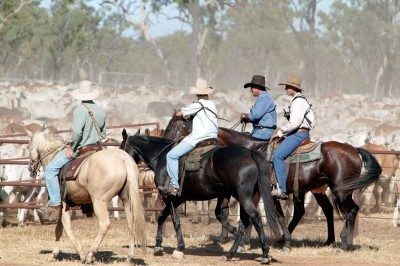Latest listings on Jobs Central
- Accountant – Naturally Australian Meat & Game Pty Ltd
- Overseer / Assistant Manager – Buttabone Station (Paraway Pastoral Co)
- Commercial/Business Admin Manager (Landmark International)
- Livestock Export Operations Support (Landmark International)
- Admin Support/Accounts Payable (Landmark International)
- Station Manager – Naryilco, SW QLD (S. Kidman & Co)
- Overseer – Merrimba Station (Paraway Pastoral Co)
- Station Hand – Merrimba Station (Paraway Pastoral Co)
- Livestock Representative – Central QLD based (Stanbroke)
- Livestock buyer and coordinator (Rangers Valley)
- Feed team supervisor (Kerwee Lotfeeders)
- Livestock supervisor (Kerwee Lotfeeders)
- Livestock/Yard manager (Yeeda Pastoral Co)
- Territory Manager – WA (Gallagher)
- Livestock Role (for couple) (Cheela Plains Pastoral Co)
Click here to access these and other exciting meat and livestock supply chain jobs currently listed on Jobs Central.

Conflict in business is seen as normal, but in a family business, like those common in the beef industry, there is the stark reality that the conflict can go on to contaminate harmonious family relationships. This doesn’t have to be the case though, and this article, authored by family business consultant, David Harland* outlines some tips to keep the outcomes of conflict positive and manageable.
CONFLICT happens in any enterprise. However, when your co-workers are also your family, conflict can take on new levels of complication and affect both familial and business operations.
There are many common sources of conflict in a family business: Everyday spats over business operations, conflicts between older and younger generations over succession or the future of the business, or resentment stemming from feelings that certain family members are being compensated in excess of their productivity can all lead to conflict.
Often, working and non-working family shareholders have different opinions about the distribution of business profits or compensation, causing friction that can lead to power struggles that damage business operations.
Even garden-variety family drama can blossom into full-blown family crises if they aren’t adequately addressed.
We’ve seen many situations where in-laws or partners of family members attempt to exert influence or otherwise involve themselves in the business.
The hazy line between business time and family time can mean that family issues are dragged into work and business issues can contaminate family time. Rivalries between siblings or others members of the family can turn ugly when there’s money or authority at stake. Whatever its source, resentment and frustration can eat away at business and family harmony.
Many (if not most) family businesses, like those common in the beef industry, struggle to confront sensitive issues because they want to avoid conflict.
The problem is that conflict can never be avoided – only prolonged. The end result is often that small kerfuffles turn into major family crises because there was no early intervention. The vast majority of family conflicts can only be resolved through early, direct conversation and a commitment to honest dialogue.
In my opinion, successful long-term family businesses:
- Anticipate conflict and can have productive conversations when they arise.
- Clearly communicate their values and expectations to each other.
- Use formal councils or family meetings to address grievances in a structured way.
- Are willing to actively work at their communication skills and invest in training and guidance.
Fortunately, there are a lot of ways to build healthy communication into your family business.
First of all, start early and speak often. Sometimes, spotting trouble early and addressing it before the problem grows is enough. Other times, even large problems can be addressed through a series of conversations that tackle small aspects of the problem, rather than trying to solve a big issue all in one go.
In my opinion as a family advisor, one of the best places to hash-out major issues is at a formal family meeting.
This might sound unnecessarily complicated, particularly if family members see each other regularly. However, while your family might be great at discussing everyday cattle management business and family matters, it’s very common for families to feel unable to tackle the big issues – the elephant in the room.
A formal structure can help families set policies, open lines of communication, and give members permission to bring up big issues. An effective communication structure can also help avoid major conflicts by giving the family space to manage the inevitable issues that will arise in a family business.
Mediated discussions can help when a thorny issue simply cannot be resolved internally.
Oftentimes, issues have become so large and the relevant parties so entrenched that constructive dialogue is no longer possible. In these situations, an objective outsider who is trained to resolve disputes and negotiate tricky emotional territory can help cut through the drama and focus on the issues at hand. We have found that many clients achieve more in a few hours than they have in the last decade.
Family retreats offer the opportunity to get away from the everyday and come together as a family business team while doing something fun and constructive. Retreats can involve all family members, just those who are active in the business, or may include spouses and young adults.
What’s important is that you focus on building family ties and strengthening communications. Family retreats are not just events – they should be the start of your commitment to better communication and healthy conflict resolution.
Bottom line: Conflicts happen in a family business. Resolving them takes time, honesty, and good communication skills. Ignoring problems never works because if you ignore them long enough they turn into crises that can damage the business and cause your family to suffer. If you’re concerned about conflicts in your business or your ability to resolve them, reach out to an expert. It’s time well spent.
 * David Harland is the Managing Director of FINH, providing advice to family business across the Asia-Pacific region for over 20 years. He will speak on family business issues at the upcoming NT Cattlemens Association Conference in Darwin on 30-31 March. David can be contacted on 07 3229 7333
* David Harland is the Managing Director of FINH, providing advice to family business across the Asia-Pacific region for over 20 years. He will speak on family business issues at the upcoming NT Cattlemens Association Conference in Darwin on 30-31 March. David can be contacted on 07 3229 7333
